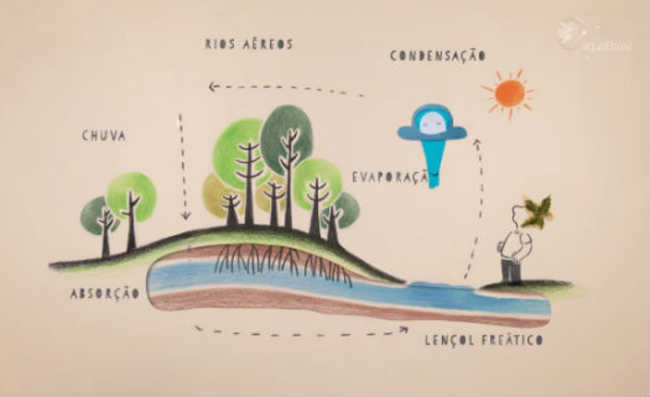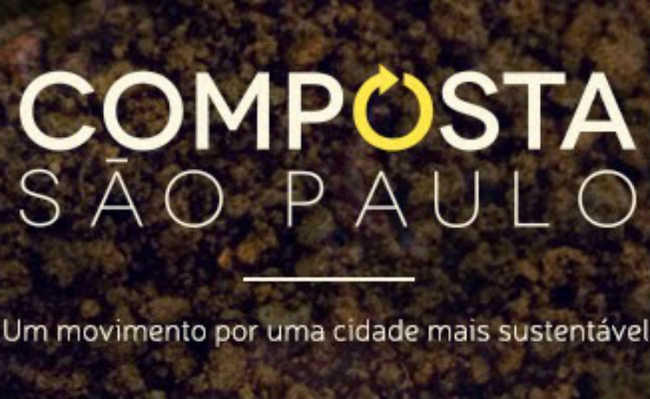Report shows results in preventing plastic pollution
Companies take steps to eliminate plastic packaging and increase the use of recycled materials by 2025 - São Paulo City Hall and Portugal are among signatories of Global Commitment

Image: UN Environment
The new report by the Ellen MacArthur Foundation, compiled with the UN Environment (UNEP), points to advances in global efforts to combat pollution from plastics.
The release of the study coincides with the first anniversary of the launch of the Global Commitment of the New Plastics Economy, which establishes a circular economy vision for the material.
Commitment
The initiative, which took action in October 2018, now has more than 400 organizations committed to eliminating plastic packaging deemed problematic and unnecessary. Those involved also invest in innovations so that all plastic packaging is 100% reusable, recyclable or compostable, and that it does not become waste or pollution.
According to the report, global efforts to prevent plastic pollution have made "promising progress". The study aims to transparently present the work that nearly 200 companies and governments are doing to change their production and use of plastic.
Examples
As examples of actions and corporate progress, the study cites the announcement by the company Unilever that it will reduce the use of virgin plastic in packaging by 50%. Mars Incorporated has said it will make 25% reductions by 2025 and PepsiCo intends to reduce virgin plastic usage in its beverage business by 20% by 2025.
The report indicates that some of the most frequently identified problematic plastic items and materials are being phased out. About 70% of relevant signatories are eliminating disposable straws and plastic bags.
In addition to the bans, signatories, including governments such as Rwanda, the UK and Chile, and cities in São Paulo and Austin, to name a few, are adopting a diverse set of policy measures. These include public purchases and liability schemes extended to producers and public awareness campaigns, fiscal measures and incentives for research and development.
Among Lusophones, the Ministry of Environment and Energy Transition of Portugal signed the Global Commitment in October 2018 and the city of São Paulo in March of this year.
Long way
The Ellen MacArthur Foundation's New Plastics Economy leader, Sander Defruyt, highlighted that "all over the world, people are calling on companies and governments to take action to stop plastics pollution." He said that the signing of the Global Commitment by leading companies and governments is a big step in that direction.
At the same time, Defruyt warned that "there is still a long way to go and it is crucial that these efforts are accelerated and scaled up, and more companies and governments take steps to eliminate plastic pollution at source."
For the executive director of UNEP, Inger Andersen, "addressing plastic pollution requires a fundamental change in the system, from a linear to a circular economy for plastic, which is at the heart of the Global Commitment of the New Plastics Economy." He added that "the benefits represent a huge opportunity, and the combined approach leaves no excuse for not acting."
Analysis
The analysis carried out for the report shows that currently, on average, 55% of the signatories' plastic packaging is reusable, recyclable or compostable. Through the Global Commitment, they committed to achieving 100% by 2025.
The total demand from signatories for recycled content in packaging will be more than 5 million tons per year by 2025.
UNEP highlights that while significant investments are being made to achieve these goals, more important investment, innovation and transformation programs need to be developed. The agency invites more companies and governments to join the Global Commitment to ensure that impact can be made at scale.
While more than 40 signatory companies are working on reuse pilot projects, currently less than 2% of the signatory group's plastic packaging is reusable, indicating a significant but little-explored opportunity. An analysis by the Ellen MacArthur Foundation has shown that replacing just 20% of single-use plastic packaging with reusable alternatives offers an opportunity worth at least $10 billion.
UN
Since June 1 of this year, the United Nations has eliminated single-use plastic from the organization's headquarters in New York based on an initiative promoted by the former President of the General Assembly, María Fernanda Espinosa.
According to UNEP data, 80% of ocean pollution comes from the Earth's surface. Every year, there are 8 million tons of plastic. If nothing is done, by 2050 the oceans will have more plastic than fish.










